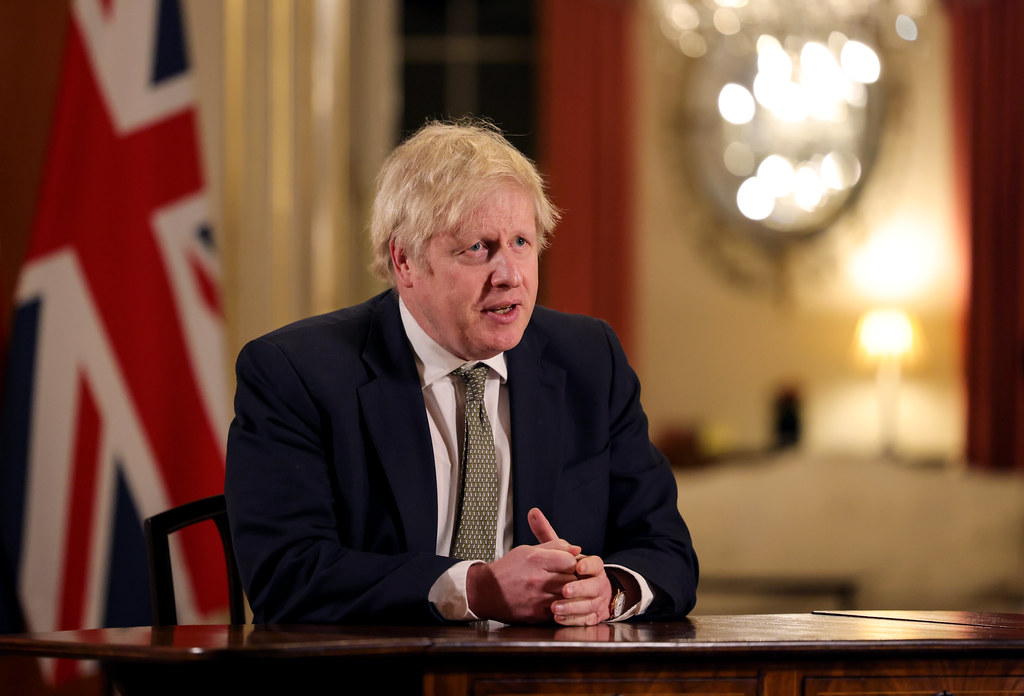LONDON (Parliament Politics Magazine) – According to Downing Street, PM Boris Johnson is poised to outline how England plans to “live with COVID” today, as he considers removing all remaining limitations.
He’ll then brief lawmakers about the plans this afternoon before a press conference in the evening and provide more specifics to the public.
Positive cases and people in their proximity will not have to isolate themselves by the end of the week, according to Downing Street.
Mr. Johnson stated, as we begin to learn to live with COVID, today will be a day of pride following one of the most trying eras in history of the country.
It would not have been possible without the efforts of many people: the NHS, which rolled out the life-saving vaccination at breakneck speed, our world-class scientists and professionals, and the general population, who are dedicated to safeguarding their loved ones and themselves.
The pandemic is far from done, but owing to the tremendous vaccine launch, we’re one step closer to returning to normalcy and finally restoring people’s freedoms while also protecting ourselves and others.
The country is in a “strong position,” but it must exercise caution
Mr Johnson is determined to lay out how the country would deal with COVID, according to No 10, because the UK is now in a “strong position” to explore reducing remaining restrictions after a successful vaccination programme.
He wishes to shift the focus away from “government involvement” and toward “individual responsibility.”
The government intends to take a “vaccine-led” approach, stating that “continued population immunity supplied by vaccines” will be required to live with the virus.
However, the Prime Minister has stated that the pandemic is “not over,” and the government’s scientific advisers on the SAGE committee have stated that there is “substantial ambiguity” about the pandemic’s route in the UK.
Will free lateral flow testing continue to be used?
The government has stated that it will adopt a “cautious approach” by keeping some surveillance systems in place and that it will reimpose measures “if necessary to respond to new variants.”
The public’s adherence to Plan B regulations has halted the spread of the virus, according to No 10, who added that more than 81 percent of adults have now received booster shots.
The government has not stated if the revisions will allow people to return to work after testing positive, although the Prime Minister’s official spokesman previously stated that “there would be guidelines, but that is not what we are suggesting.”
It also hasn’t said if free lateral flow testing will be discontinued in the wake of rumours that individuals will have to pay for them.
Mr Johnson told the BBC on Sunday morning that testing would take place “at a considerably lesser level” because continuing to spend £2 billion per month on the scheme is unsustainable.
It was a “premature decision” to end self-isolation
Some have criticised the idea to end self-isolation, including three-quarters of NHS executives in England, according to a study by the NHS Confederation.
Matthew Taylor, the chief executive of the NHS Confederation, which represents NHS trusts, told Sky News that it was “too early” to halt obligatory testing and that there was no plan in place to replace it.
What is the guidance for NHS and care personnel if isolation is no longer needed, he asked, and he didn’t see why all the constraints had to be abolished at the same time.
The World Health Organisation’s special envoy on COVID-19, Dr. David Nabarro, was also against the decision.
“I understand their concerns about absenteeism but at the same time, what we know about this virus is that it is not good for individuals, and simply treating it as if it were a harmless virus we think is unwise,” he told BBC Radio 4’s Today programme.






